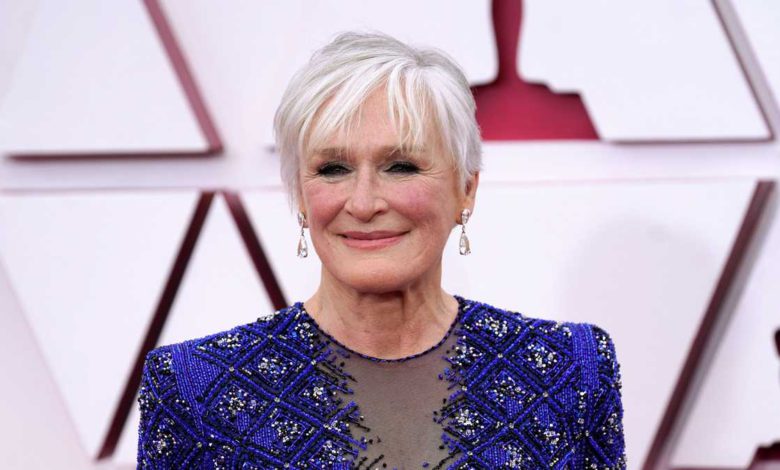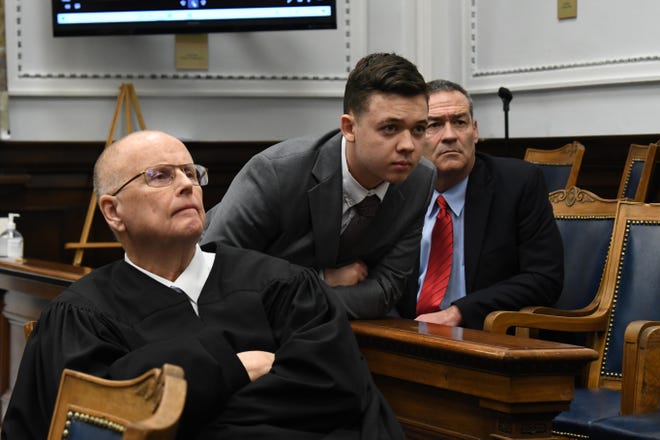

Actress Glenn Close has enjoyed a celebrated career in the film industry, but she once worried she could be risking it all by speaking out against the stigma around mental illness."There did come a time when I thought, 'I wonder if I'm known in my industry as somebody who comes out and is against stigma and talks about mental health if that's going to affect my career,'" Close told CNN anchor Anderson Cooper at the Citizen by CNN 2021 Conference.She persisted in her effort to destigmatize mental health conversations, though, because there seemed no other good option, she said."I've never been comfortable with the alternative, which is to do nothing and to say nothing," Close told Cooper.A family effortThe courage to do something came from her sister, she said.Since 2009, Close, her sister Jessie Close, and Jessie's son Calen Pick have been at the helm of Bring Change to Mind, a nonprofit that advocates for mental health awareness and support in schools and communities.The effort began when Jessie came to Close to tell her that she was having suicidal thoughts and she needed help, Close said. The revelation had an impact on the whole family.Jessie was diagnosed with bipolar disorder and Pick was diagnosed with schizoaffective disorder in 2001. They both found help, but the larger family still needed to learn how to talk about and understand the issues their loved ones were facing, Close said.A larger strategy was called for when Close's sister and nephew started getting treatment and realized the stigma they faced was often just as bad as the symptoms they were experiencing, Close said."We decided as a family to talk about it on a national platform," she added."We should be able to talk about it freely and openly, but it ... is the stigma is the core ... issue that we have to overcome to get the help, the funding, that mental health needs in this country still," Close said.Each year in the United States, 1 in 5 adults experience mental illness and 1 in 6 children ages 6 to 17 experience a mental health disorder, according to the National Alliance on Mental Illness."I think people don't understand that you aren't your disease. I think it's hard for people to get the idea that there's something in your brain ... a mental health issue, a mental illness is a chronic illness like any else. It happens to be in your ... brain. It doesn't make you less, it makes you part of the human condition," Close said.Reexamining misconceptionsAlso fueling the stigma, Close says, is how people with mental illness have been "demonized" for centuries.The actress said open discussions about mental health also led her to reappraise the character she played in the 1987 film "Fatal Attraction," opposite Michael Douglas.In the film, her character, Alex Forrest, stalks a man with whom she had an affair.At the time, Close said she took the script to two psychiatrists, neither of whom raised the possibility that her character was dealing with mental health issues."Now, it would be the first thing I think that people would talk about," she said, adding that it would have been "interesting" to tell the story from Forrest's point of view.A professor once told her he had used the character of Alex Forrest as an extreme example of borderline personality disorder, Close added.But when she talked about it, Close said she was criticized for making all people "suffering with borderline personality look like monsters."The actress said that had never been her intent, noting again that it was an "extreme example" of the disorder and that for "better or worse," she had started the conversation.Learning to talk to one anotherMental health concerns are particularly concerning among adolescents, and the pandemic has only made things worse, Close said.Bring Change to Mind has set up groups in schools where adolescents can safely share their feelings and develop a vocabulary to discuss their mental health, Close said."If you have a peer and you see that their behavior is not what they were before ... you can ask somebody if they are OK and you can ask them again and you can ask them again until you get an answer," she said.They can then bring their new tools outside the groups to their friends and their family, Close added."Mental health is a family affair," she said. "We have to form this safety net amongst each other."
Actress Glenn Close has enjoyed a celebrated career in the film industry, but she once worried she could be risking it all by speaking out against the stigma around mental illness.
"There did come a time when I thought, 'I wonder if I'm known in my industry as somebody who comes out and is against stigma and talks about mental health if that's going to affect my career,'" Close told CNN anchor Anderson Cooper at the Citizen by CNN 2021 Conference.
She persisted in her effort to destigmatize mental health conversations, though, because there seemed no other good option, she said.
"I've never been comfortable with the alternative, which is to do nothing and to say nothing," Close told Cooper.
A family effort
The courage to do something came from her sister, she said.
Since 2009, Close, her sister Jessie Close, and Jessie's son Calen Pick have been at the helm of Bring Change to Mind, a nonprofit that advocates for mental health awareness and support in schools and communities.
The effort began when Jessie came to Close to tell her that she was having suicidal thoughts and she needed help, Close said. The revelation had an impact on the whole family.
Jessie was diagnosed with bipolar disorder and Pick was diagnosed with schizoaffective disorder in 2001. They both found help, but the larger family still needed to learn how to talk about and understand the issues their loved ones were facing, Close said.
A larger strategy was called for when Close's sister and nephew started getting treatment and realized the stigma they faced was often just as bad as the symptoms they were experiencing, Close said.
"We decided as a family to talk about it on a national platform," she added.
"We should be able to talk about it freely and openly, but it ... is the stigma is the core ... issue that we have to overcome to get the help, the funding, that mental health needs in this country still," Close said.
Each year in the United States, 1 in 5 adults experience mental illness and 1 in 6 children ages 6 to 17 experience a mental health disorder, according to the National Alliance on Mental Illness.
"I think people don't understand that you aren't your disease. I think it's hard for people to get the idea that there's something in your brain ... a mental health issue, a mental illness is a chronic illness like any else. It happens to be in your ... brain. It doesn't make you less, it makes you part of the human condition," Close said.
Reexamining misconceptions
Also fueling the stigma, Close says, is how people with mental illness have been "demonized" for centuries.
The actress said open discussions about mental health also led her to reappraise the character she played in the 1987 film "Fatal Attraction," opposite Michael Douglas.
In the film, her character, Alex Forrest, stalks a man with whom she had an affair.
At the time, Close said she took the script to two psychiatrists, neither of whom raised the possibility that her character was dealing with mental health issues.
"Now, it would be the first thing I think that people would talk about," she said, adding that it would have been "interesting" to tell the story from Forrest's point of view.
A professor once told her he had used the character of Alex Forrest as an extreme example of borderline personality disorder, Close added.
But when she talked about it, Close said she was criticized for making all people "suffering with borderline personality look like monsters."
The actress said that had never been her intent, noting again that it was an "extreme example" of the disorder and that for "better or worse," she had started the conversation.
Learning to talk to one another
Mental health concerns are particularly concerning among adolescents, and the pandemic has only made things worse, Close said.
Bring Change to Mind has set up groups in schools where adolescents can safely share their feelings and develop a vocabulary to discuss their mental health, Close said.
"If you have a peer and you see that their behavior is not what they were before ... you can ask somebody if they are OK and you can ask them again and you can ask them again until you get an answer," she said.
They can then bring their new tools outside the groups to their friends and their family, Close added.
"Mental health is a family affair," she said. "We have to form this safety net amongst each other."
Source link







